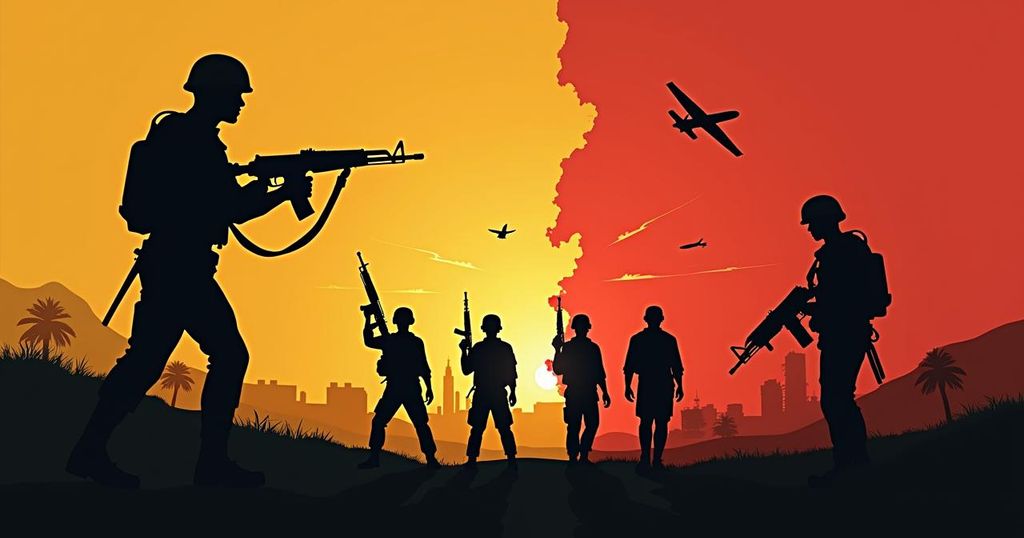Accusations of Egyptian Involvement in the Sudanese Conflict: A Complex Landscape of Allegations and Denials

The leader of Sudan’s RSF has accused Egypt of conducting air strikes against its forces, but Egypt has denied these allegations. The RSF claims Egypt is using U.S. bombs in the conflict, while the fighting continues to escalate, displacing over 10 million people. Allegations of foreign interference complicate the conflict, with various nations purportedly backing opposing sides. The situation necessitates urgent international attention and resolution efforts.
The Rapid Support Forces (RSF) of Sudan, led by Mohamed Hamdan Dagalo, accused Egypt of conducting air strikes against its troops in the area of Jebel Moya. Dagalo alleged that the strikes employed United States-made munitions and asserted that Egyptian involvement was emblematic of broader interference in the conflict, naming five other countries including Iran. In response, Egypt’s Ministry of Foreign Affairs categorically denied these claims, emphasizing that its military plays no role in the ongoing hostilities. During a recent video statement, Dagalo also accused Egypt of supplying training and drones to the Sudanese Armed Forces (SAF), which have recently gained strategic advantages in the ongoing conflict that erupted in April 2023, displacing over 10 million individuals. Furthermore, Dagalo’s assertions included allegations of foreign mercenaries being involved in the fighting, echoing claims of ethnically motivated violence perpetrated by both the RSF and the SAF. Human rights organizations have documented severe violations by both sides, including attacks on civilians and impediments to humanitarian aid. Recent military confrontations, especially in Khartoum and the southeastern Sennar state, have heightened tensions, leading to urgent calls for international intervention. Dagalo claimed that the ongoing war would extend over several years, suggesting the potential mobilization of vast military resources. Meanwhile, the United Arab Emirates has also been implicated, with accusations of providing arms to the RSF and engaging in the conflict milieu. Despite these allegations, the UAE has denied any wrongdoing.
The discourse surrounding the Sudanese conflict is framed by the longstanding power struggle between the RSF and the SAF, particularly under the leadership of army chief Abdel Fattah al-Burhan and Dagalo. The emergence of ethnically targeted violence and allegations of human rights abuses have complicated the humanitarian crisis that has ensued, with millions displaced. The intersection of international interests is apparent, as various nations allegedly play roles in the conflict, whether through direct military support or mediation efforts. Egypt has positioned itself as a key mediator alongside the United States and Saudi Arabia, but the recent allegations pose significant challenges for diplomatic engagement in the region.
In summary, the conflict in Sudan has reached a critical juncture, with accusations of Egyptian involvement exacerbating tensions between the RSF and the SAF. The ensuing humanitarian crisis continues to unfold, consequentially impacting millions of civilians. As international actors navigate this complex landscape, the urgent need for dialogue and resolution becomes increasingly apparent against a backdrop of escalating violence and legal infractions committed by all parties involved.
Original Source: www.aljazeera.com





